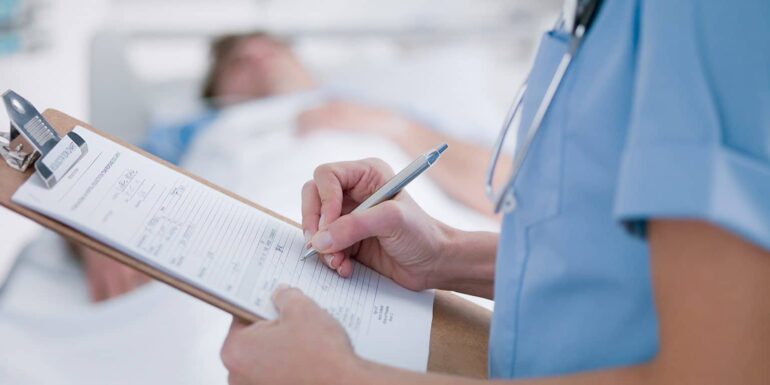TL;DR:
- A novel machine learning model accurately estimates scores from a depression questionnaire using complete and partial clinical notes.
- The model analyzes unorganized and partially organized clinical notes to generate accurate estimated scores on the Patient Health Questionnaire-9 (PHQ-9).
- The dataset used contains information on over 490,000 individuals with Major Depressive Disorder (MDD) across the United States.
- Application of the model resulted in a significant increase in the number of generated ePHQ-9 scores and patient encounters compared to recorded scores.
- The machine learning approach holds great potential for improving mental health assessments and patient care.
Main AI News:
A cutting-edge machine learning model has successfully predicted scores from a depression questionnaire using both complete and partial clinical notes, as highlighted in a recent presentation at the annual meeting of the American Society of Clinical Psychopharmacology. Dr. Carl D. Marci, Chief Psychiatrist and Managing Director of Mental Health and Neurosciences at OM1 Inc., a prominent healthcare technology company based in Boston, shared his insights with Healio, stating, “In the real world, there’s a lot of missing data and [Patient Health Questionnaire-9] scores are commonly used and patients record them, but not everybody uses them every time. We wondered whether we could take a data science approach and take psychiatrists’ notes, have the computer analyze it, and generate a score.”
Dr. Marci and his team set out to employ a groundbreaking machine learning technique to provide accurate estimated scores on the Patient Health Questionnaire-9 based on a series of unorganized and partially organized clinical notes pertaining to individuals with depression. They utilized data sourced from the OM1 PremiOM Major Depressive Disorder dataset, which encompassed comprehensive information on over 490,000 individuals receiving treatment for Major Depressive Disorder (MDD) across the United States.
The study focused on patients with MDD who had both a recorded PHQ-9 score and clinical notes of any kind, resulting in a total of 32,802 records and 96,891 patient encounters. These patients were randomly divided into either a training cohort, used to construct a model, or a validation cohort consisting of 15,792 records and 46,333 patient encounters.
To assess the performance of each model, the researchers employed the area under the receiver-operating-characteristic curve (AUC), a widely accepted metric in evaluating model accuracy. They also utilized Spearman and Pearson R values, commonly employed in developing validated estimated endpoints in various medical specialties, to evaluate the continuous electronic PHQ-9 scores.
The results demonstrated that the application of the machine learning model to the entire original dataset led to the generation of ePHQ-9 scores for over 2.2 million patient encounters. This represented a substantial increase of 2.7 times compared to the 814,166 recorded PHQ-9 scores. Moreover, the model successfully generated encounters for 208,692 patients, reflecting a 1.2-fold increase compared to the original 174,897 individuals with PHQ-9 scores.
Dr. Marci emphasized the significance of this research, particularly in real-world data sets, stating, “When you’re doing research in real-world data sets like this and you begin to define your cohort, you have a much higher chance of having a clinical endpoint.” The novel machine learning approach employed in this study holds immense promise for enhancing the accuracy and efficiency of mental health assessments by leveraging clinical notes and data science methodologies, ultimately improving patient care and outcomes.
Conclusion:
The development of a machine learning model capable of accurately predicting depression scores from clinical notes is a significant breakthrough in the healthcare market. By leveraging data science and advanced algorithms, this model has the potential to revolutionize mental health assessments by providing more accurate and efficient evaluation tools. The ability to generate estimated scores from unorganized and partial clinical notes opens up new avenues for understanding and managing depression.
This technology not only enhances patient care but also has the potential to drive advancements in personalized treatment approaches and resource allocation in mental health services. The market can expect to see increased adoption of similar data-driven approaches and further innovation in leveraging machine learning for mental health diagnosis and treatment.

